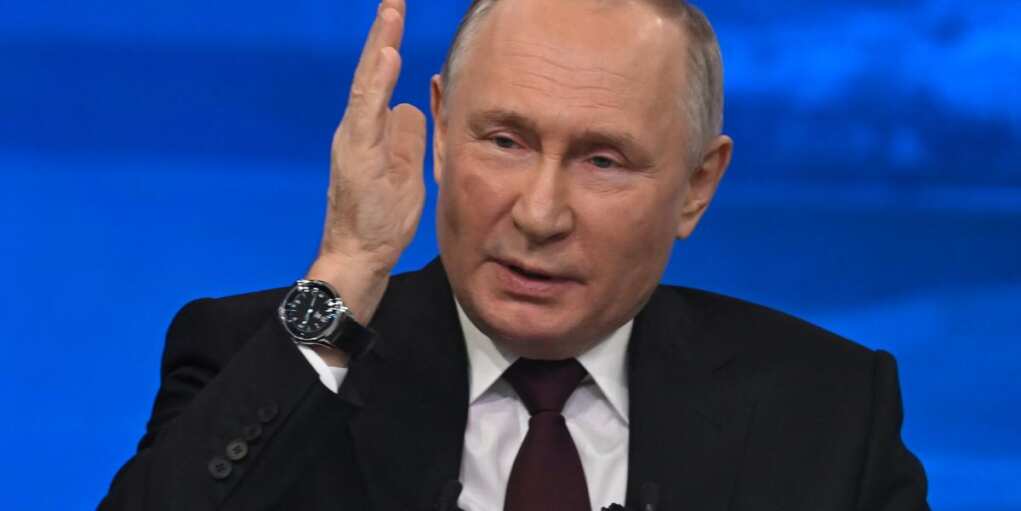Putin Pulls Shock Move on Trump-Backed Peace Talks

Russian President Vladimir Putin abruptly announced Wednesday he will not attend crucial peace talks with Ukrainian President Volodymyr Zelensky in Turkey, despite initially signaling openness to negotiations strongly encouraged by President Donald Trump.
The planned summit in Istanbul was seen as the most significant step yet toward ending the brutal Russia-Ukraine conflict. Just days ago, Putin himself called for direct talks with Zelensky, prompting Trump—currently in Qatar—to publicly support and even suggest he might attend personally if Putin participated.
In an unexpected reversal, the Kremlin announced Putin would not attend, delegating responsibility instead to presidential aide Vladimir Medinsky. The decision marks a sudden shift that has confused observers and raised concerns about Putin’s true intentions regarding peace negotiations.
Trump had actively promoted the summit, urging Zelensky to seize the opportunity for dialogue. Ukrainian officials responded positively, signaling willingness to discuss a wide range of issues. Zelensky’s chief of staff, Andriy Yermak, emphasized Ukraine’s readiness to pursue “anything that contributes to long and lasting peace,” despite Ukraine’s continued defense against relentless Russian attacks.
Trump initially dispatched Secretary of State Marco Rubio to represent U.S. interests at the talks, even hinting he might personally join if Putin attended. “I know he would like me to be there, and that’s a possibility,” Trump said, underscoring his serious commitment to achieving peace.
Putin’s withdrawal from these pivotal discussions threatens to derail diplomatic momentum, frustrating Trump’s efforts to facilitate an end to hostilities. Putin and Zelensky last met in person in December 2019, making this latest missed opportunity especially significant.
Trump’s supporters see Putin’s unexpected decision as a direct rebuff to Trump’s diplomatic outreach, highlighting the difficulties of negotiating with Russia’s unpredictable leader. Conservatives widely back Trump’s proactive approach, arguing that America’s direct involvement under Trump’s leadership offers the best chance at resolving the brutal conflict.
The sudden Kremlin pivot has drawn widespread international criticism, reinforcing skepticism about Russia’s genuine interest in peace. Putin’s absence significantly undermines prospects for an immediate ceasefire, raising questions about Russia’s ultimate objectives and willingness to end hostilities.
Meanwhile, Trump’s administration remains cautiously optimistic, emphasizing continued diplomatic efforts. Trump himself has reaffirmed his commitment to peace negotiations, asserting that direct dialogue remains crucial despite Putin’s refusal to engage personally. With Rubio still attending, Trump hopes that sustained pressure will eventually push Russia back to the negotiating table.
The White House has yet to respond officially to Putin’s latest maneuver, leaving open the question of America’s next strategic move. Conservative voices urge Trump to maintain pressure on Russia, leveraging diplomatic, economic, and military support for Ukraine to persuade Putin back toward meaningful negotiations.
Putin’s abrupt refusal to attend the talks represents a significant setback, complicating an already fragile diplomatic process. Yet Trump’s willingness to engage directly demonstrates America’s strong position, highlighting Putin’s diplomatic isolation and underscoring the importance of American leadership.
For conservatives, Putin’s latest move underscores exactly why Trump’s decisive and active role is essential. Only through continued strong leadership can the U.S. effectively manage Putin’s unpredictability and pressure Russia toward genuine peace efforts.
As the world watches closely, Trump’s next moves will determine whether this historic opportunity for peace can still be salvaged, or if Putin’s latest maneuver permanently derails progress toward ending the devastating Ukraine conflict.
